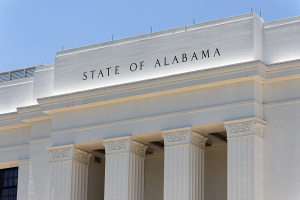Romney's Immigration Stance May Be Too Tough for Evangelicals
GOP presidential candidate Mitt Romney’s plans to hammer fellow contender Newt Gingrich and Rick Perry on their seemingly lenient immigration positions may conflict with the very same evangelical voters he is trying to court.
Campaign reports reveal that Romney, the winner of the Iowa caucus and New Hampshire primary, plans to campaign in South Carolina on Monday on immigration reform.
Romney will appear next week with Kansas Secretary of State Kris Kobach, who is a Republican and a contributor in the passing of Arizona’s tough immigration law. Romney will likely take a firm stance on immigration, endorsing state efforts to curb the flow of illegal aliens into the United States.
South Carolina is one of several southern states that have adopted similar reforms, including making it illegal to transport or harbor an illegal alien and allowing authorities to check the immigration status of suspected aliens during traffic stops.
But the state’s U.S. district judge struck down those provisions in December. The spokesman for Governor Nikki Haley, however, defended the state’s efforts, telling Reuters, “If the feds were doing their job, we wouldn't have had to address illegal immigration reform at the state level."
While tough immigration laws are an easy sale for most fiscal conservatives, Christian conservatives take a slightly different stance.
Galen Carey, vice president of government relations for the National Association of Evangelicals, and other faith leaders have gone on record opposing strict immigration laws as unchristian and out of line with the biblical view of how to treat the stranger.
"Strangers, along with widows and orphans are the iconic biblical symbols for those who are poor, weak and in need of help and the biblical mandate to care for those in need is very strong," Carey told The Christian Post in a 2011 interview.
Carey has spoken out against South Carolina’s immigration law and similar reforms in other states. Immigration reform, he said, should be “just and humane.”
The Southern Baptist Convention passed a resolution last year urging for a “just and compassionate path to legal status with appropriate restitutionary measures.”
Candidates seeking to be the evangelicals’ candidate-of-choice have taken immigration stances that would align with this voter bloc.
Former House Speaker Gingrich said in a November debate that his view of just and humane reform has led him to support a pathway to citizenship.
“If you've come here recently, you have no ties to this country, you ought to go home, period,” he argued. “If you've been here 25 years and you got three kids and two grandkids, you've been paying taxes and obeying the law, you belong to a local church, I don't think we're going to separate you from your family, uproot you forcefully and kick you out.”
Similarly. Gov. Perry defended a Texas law providing in-state tuition to young illegal immigrants in an October debate stating that doing anything less would be heartless.
Romney challenged both candidates’ answers. He likened Gingrich’s answer to amnesty and denounced Perry’s policy as enticing illegal immigrants to come to America.
Romney later explained on FOX News, “They (illegal immigrants) should not be placed ahead of the line. Instead, they should be placed at the back of the line, and they should not be allowed to stay in this country and be given permanent residency or citizenship merely because you've come here illegally."
He continued, "The principle is we're not going to have an amnesty system that says the people who come here illegally get to stay for the rest of their life in this country legally.”
Evangelicals, like most conservatives, do not believe in amnesty, said Southern Baptist ethicist and Christian Post Executive Editor Richard Land.
“Neither of the extreme solutions of deportation or amnesty are appropriate, workable solutions. To force those who are here illegally to leave is neither politically viable nor humanitarian. To offer ‘amnesty’ to those who broke the immigration laws of our country is disrespectful of the rule of law,” Land wrote in a May column.
He, like many other church leaders, is calling on Christian leaders to be compassionate as they search for a solution.
“As Christians, we must think through the question of illegal immigration not only as concerned citizens, but also as compassionate Christians,” Land wrote.





























